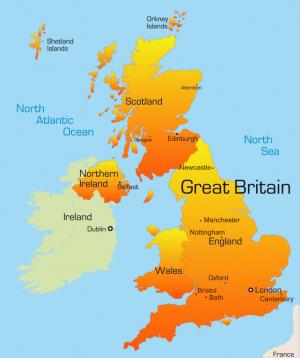Teacher recruitment levels are in crisis, and have been for some time. Only half the number of secondary teachers needed for this academic year have actually been recruited, according to figures obtained by the National Education Union (NEU) and the National Association of Head Teachers (NAHT). Teacher vacancies have doubled since the start of the pandemic, while one in five teachers who qualified in 2020 have already quit; even the previously reliable juggernaut Teach First has been branded ‘inadequate’ over its ability to recruit by the Department for Education. What’s more, the shortage of male teachers has led to a worrying gender imbalance.
Yet despite these worrying figures, politicians – and the public – seem to be suffering from ‘crisis fatigue’, a sense of exhaustion and burnout from prolonged adversity: yes, I know things are really bad, but what can we really do? After a decade of austerity and a global pandemic, and now faced with a housing crisis, a cost of living crisis, an energy crisis, an NHS waiting lists crisis, and all the rest, it’s easy to feel apathetic. Ultimately school classrooms won’t sit empty; pupils will be taught by teaching assistants, cover staff, non-specialists, and this makes it easier for the government to ignore the cries of concern from schools about spiralling class sizes and poor quality provision.
The Tories have tried throwing a bit of money at the problem, and have increased starting salaries to £30,000 and bursaries for trainees in a number of subjects. Labour have also, uninspiringly, promised to give a ‘golden hello’ of £2,400 to teachers who complete two years of training. Education Secretary Gillian Keegan has vaguely floated the notion of higher pay for teachers in subjects where there are acute shortages, for example physics, which is currently only attracting around 20 per cent of the teachers required. No one has actually asked Keegan how this would work though given that every subject other than history, PE and classics is currently missing its target.
Neither party seems to be willing to prioritise educational policy despite it being a huge election opportunity. Rishi Sunak has proposed maths lessons up until 18, a plan that simply doesn’t add up given the chronic shortage of teachers; one in eight maths lessons are already taught by someone without a maths degree and around 175,000 students already fail maths GCSE every year. Other than that, there seem to be no bright ideas from either side; where is the education champion, the modern day Tony Blair, Michael Gove or Kenneth Baker, willing to revive education from its death by a thousand cuts?
The other, often overlooked, problem is what the teacher recruitment crisis is doing to gender imbalances in schools. Men are less likely than women to become teachers, and they are more likely to leave. This means that one in three primary schools and one in four secondary schools do not have a male classroom teacher. This equates to around 3,420 schools, which means that nearly a million children have no male role model in an education setting. This is particularly problematic for schools in disadvantaged areas (over 40 per cent of primary schools in special measures have no male teachers), as these students are also less likely to have a male role model at home.
If the roles were reversed – and a million children had no female role model in an educational setting – there would be cries of outrage: this would be simply unacceptable. Yet male role models are more important now than ever.
Firstly, schools are, arguably, increasingly ‘feminised’ – for example, language and feeling takes precedence over physical activity and manual skills. Secondly, masculinity is, if not in crisis, then definitely in question, and we don’t want students turning to TikTok videos of Andrew Tate because they have no real alternative. Girls outperform boys at every key stage, and I have no doubt that more male teachers would help to address this.
September 13, 2023

